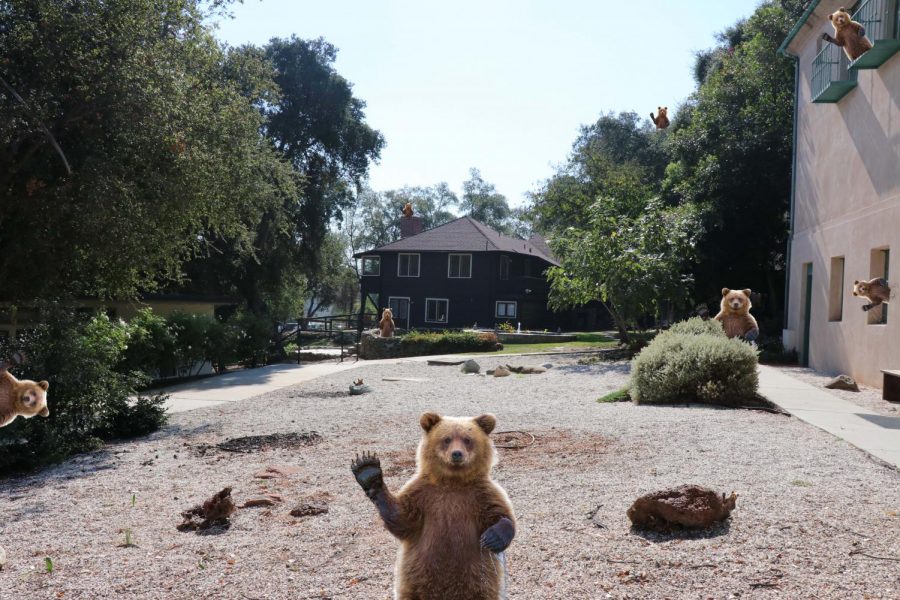The beloved Webb Schools’ campus is located in the foothills of Mt. San Antonio. In such conditions, the upper campus is bound to have some wildlife activity. Among the most sighted are bears. Students and faculty have already had many encounters this fall.
If you encountered a bear in this exact moment, would you know how to react? Most students at Webb would resort to the option of frantically fleeing while being as loud as possible. Although this can help scare the bear, it can also aggravate it. It all depends on what the situation is.
If you see a bear, and the bear does not see or acknowledge your presence, slowly walk backwards. Always keep your eye on the bear and be aware of your surroundings. Once you cannot see the bear anymore, call campus security immediately and inform them of the bear’s whereabouts.
Rick Duque, a faculty member who lives on campus, said, “In my nineteen years, I have seen two bears…One was a few weeks ago when I was on duty and the bears were up by the gym. They were playing in one of the big trash trucks, getting food… They’re curious and they’re looking for food. The mom is protective of her cubs. The first thing they want to do is to get away… I think now that students are here more, there have been less sightings. They don’t want human contact.”
Security member, Stephen Hutzell, confirmed that most bears on campus are simply just hungry. He said, “These bears are called trash-bears. Thats what theyre looking for. They’re just looking for food. They’re not curious, just hungry… If they come to campus and eat, they’re going to keep coming back… Webb just bought a trash truck so it’s not just sitting behind the dining hall with all the odors
According to Mr. Hutzell, there have been no reported situations of aggressive bears; the chances of a student encountering an aggressive bear are very small.
In the chances that a student does encounter a difficult situation, it is necessary know the appropriate way to react. There are different ways to approach a situation with a bear. The two main conditions that can change the scenario are: if the bear is curious or if the bear is agitated.
If a bear is curious, it will have pointed ears and will seem to have it’s attention on whoever is in front of it. The best way to avoid it is to begin by identifying yourself as human. Talking calmly while slowly backing away is how the bear will know that you are human. If it begins to curiously follow, then act aggressively loud while getting as big as possible. Eye contact with the bear will assert your dominance. The bear should then flee, knowing you are not not food. This situation is the only instance where acting aggressive is acceptable.
Unlike a curious bear, a disturbed bear will not flee. A bear will express it’s discomfort by stomping, woofing, chomping, and growling. These signs indicate that the bear is stressed by your presence. Immediately, back away slowly. If it still looks angry, there is a high possibility that it will charge. In the event that the bear does charge, the best way to avoid getting injured is to play dead in a fetal position, stay as silent as possible, and protect your neck with your hands. Do not take off your backpacks or bags; they can provide protection. The bear will then think you are harmless. It should eventually walk away, making it safe to leave.
Under no circumstances is it okay to run toward or away from a bear. Running, and any sudden movements, will make the bear anxious.
Another difference in bear situations, is if the bear is a black bear or a California brown bear. Jenna Hawkes, (‘21), said, “People always say to get big for one and get small for another. Those are like polar opposites!” She was referring to the difference of bears. Usually, black bears are more defensive than the California brown bears. These brown bears are known to act more aggressively. Although there is a difference in behavior, the solutions above still work the same.
Bears are peaceful animals and do not mean any harm. If you ever see a bear on campus, remember to remain calm and immediately call campus security. The number is: (909) 762-2604.















